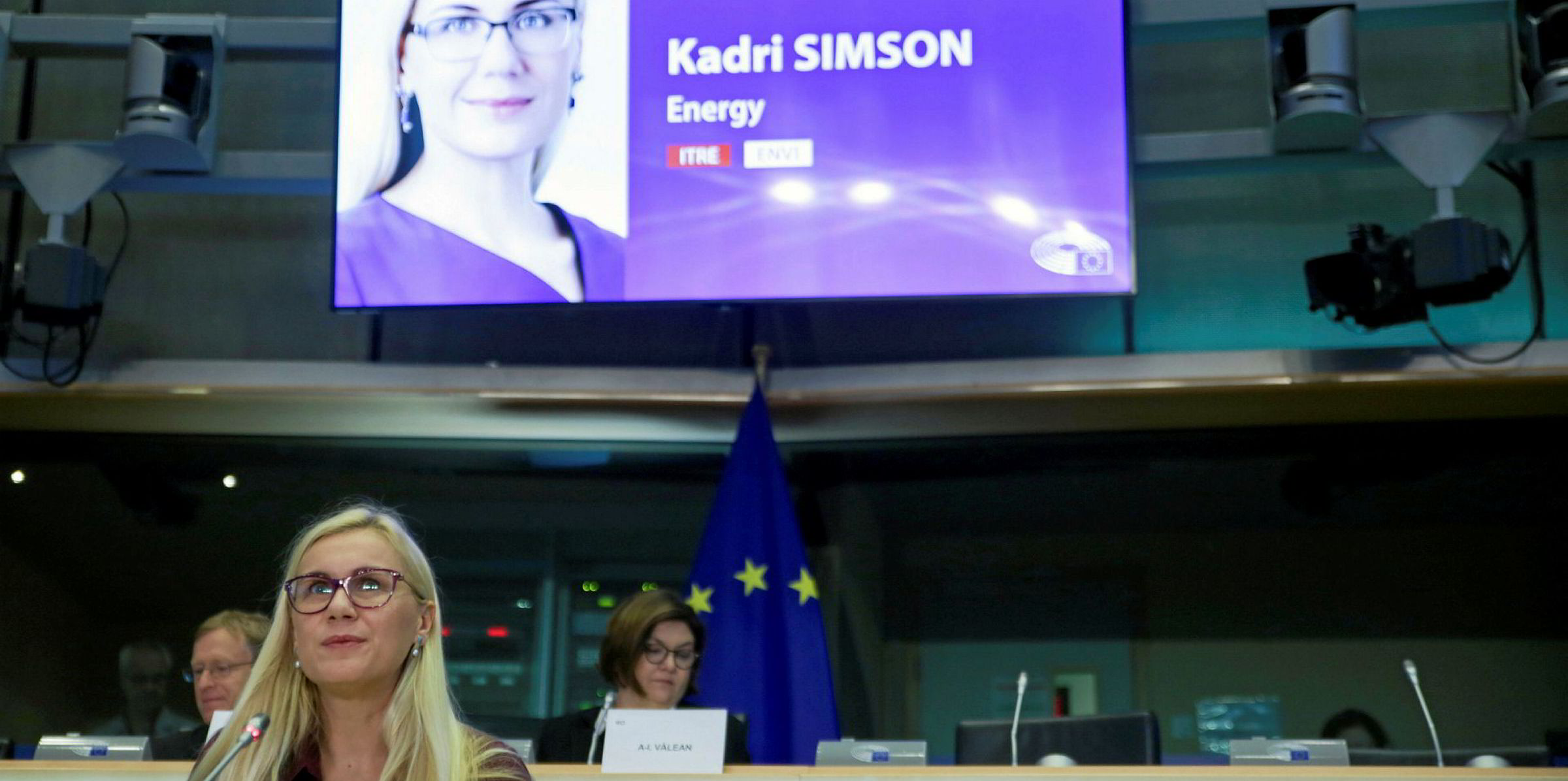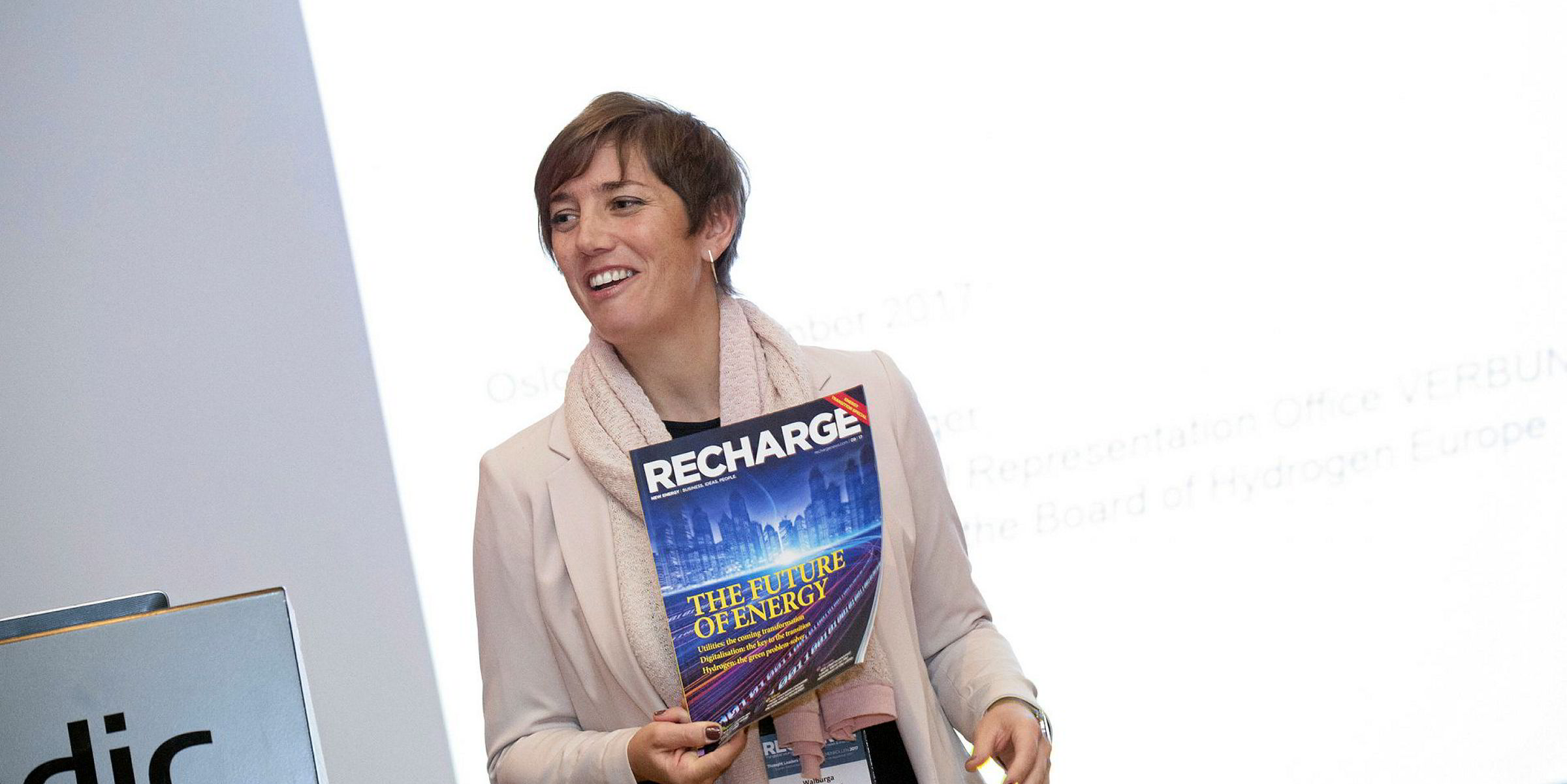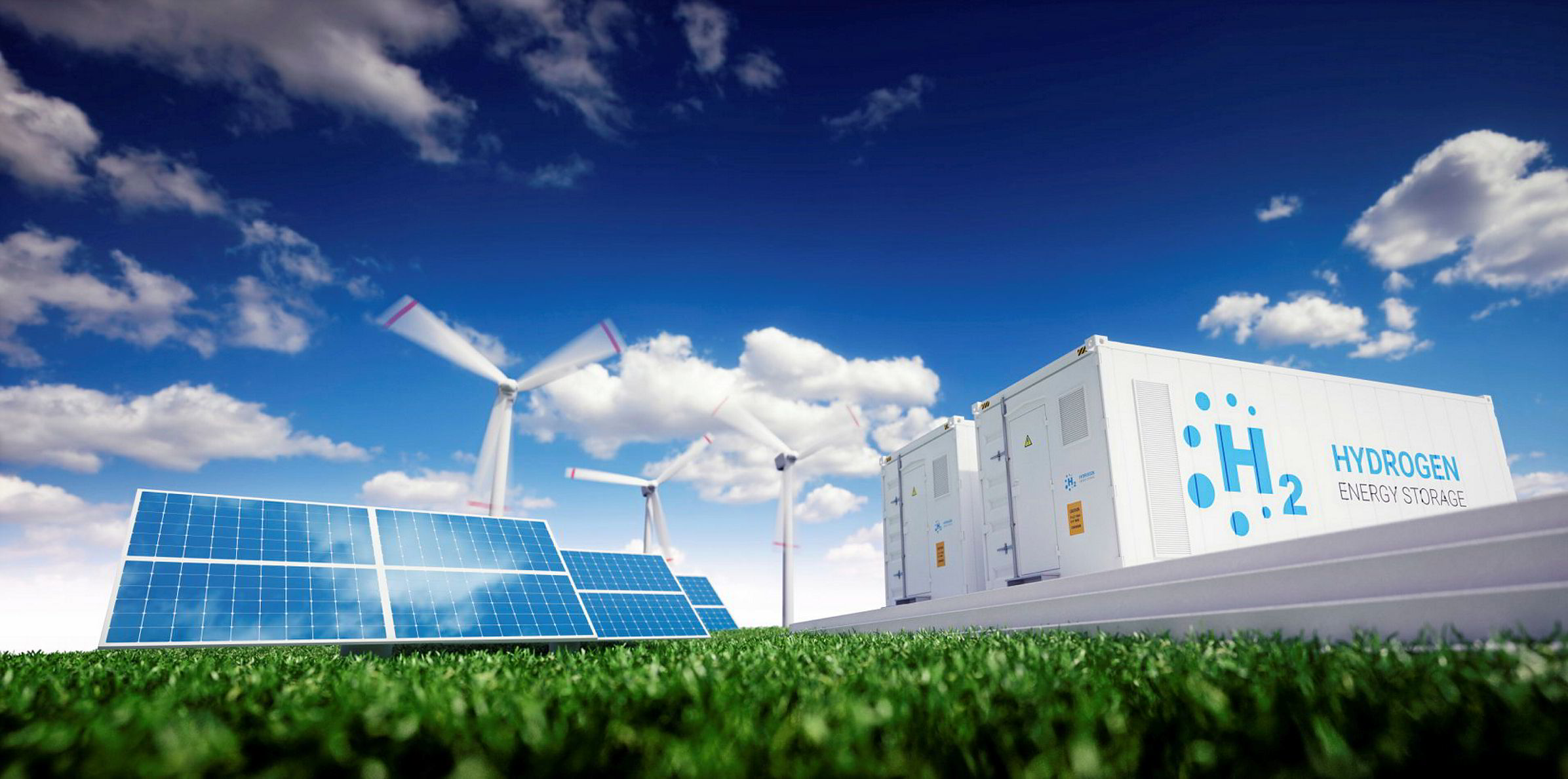Climate activists and renewables groups sounded alarm bells over the choice of Kadri Simson as the EU’s next energy commissioner, after she talked up gas during what was branded an “alarmingly weak” appearance before European legislators.
Former Estonian minister Simson secured majority backing to take over as energy commissioner after a grilling by the European Parliament’s Committee on Industry, Research and Energy earlier in October.
But green groups highlighted the support of gas expressed by the commissioner-elect, who will play a crucial role in delivering the EU’s ambitions of a 32% renewable energy share in 2030.
Simson told the committee that gas “might be the most cost-efficient option” to wean Europe off coal, citing energy security as another reason to invest in “future-proof” gas infrastructure.
She claimed liquefied natural gas (LNG) imports from the US had “been successful and should be continued”. Asked if the use of LNG was compatible with the Paris climate agreement, Simson claimed hydrogen and biogas would be increasingly used in the near future as alternatives.
The EU's main solar lobbyist, SolarPower Europe, clearly contradicted Simson, and instead said solar should be preferred in a new Green Deal strategy by the economic block.
“Solar and renewables offer Europe the opportunity to lead the world in climate, as well as delivering many concrete benefits for European citizens and the economy. One of the key advantages of solar is the possibility of a fully integrated solution, such as renewable hydrogen, grid-intelligent solar, hybrid renewable systems, and storage," SolarPower Europe chief executive Walburga Hemetsberger told Recharge in a reaction to Simson's speech.
"Today, solar is one of the most cost-efficient and job-intensive energy sources, and can particularly benefit European communities in energy transition areas. ... Thus, solar emerges as the preferred low-cost energy solution to implement the Green Deal.
"EU policymakers should concentrate efforts and future investments towards forward-looking and innovative technologies that will soon be the cornerstone of our climate-neutral economy.”
Environmental groups were even more outspoken against Simson's preference for natural gas.
“This was an alarmingly weak performance from the candidate to lead Europe’s energy transformation to avoid a climate crisis,” said Friends of the Earth Europe campaigner Clemence Hutin.
“After the biggest climate protests the world has ever seen, Simson was ambiguous about the need to phase out fossil fuels at speed, and had no vision to accelerate the green and just transformation of our energy. She’s going to have to up her game fast.”
During her three-hour hearing Simson did express support for the EU’s proposed 2050 climate-neutral target, describing it as “a wise thing to do”, and called for more investments “in accommodating and storing renewable energy”.
Unlike her predecessor Miguel Arias Canete, Simson’s brief will not directly include climate action – a portfolio handed to vice-president elect Frans Timmermans, who is tasked with developing the European Green Deal over the next five years.
European Commission President-elect Ursula von der Leyen wants to make the fight against climate change the hallmark of her commission.
Von der Leyen has said she hopes all new commissioners will be approved by mid-October, with the commission as a whole approved in a European Parliament vote on 23 October before starting work on 1 November.
UPDATED to add comment by SolarPower Europe



